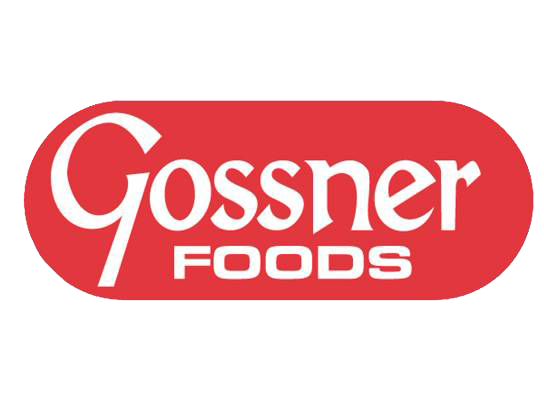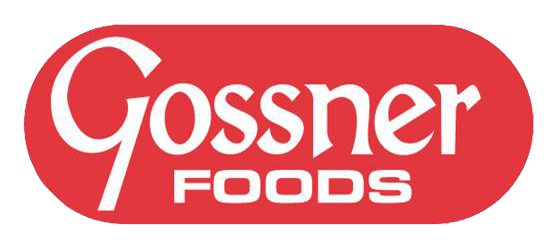The Gossner Foods Story
The story of Gossner Foods doesn’t begin in Logan, Utah-it doesn’t even begin in the United States of America. It began with the dream of young Edwin Gossner who thought that America was the land of endless opportunity. Turns out that he was right!
Ed was born in 1908 on the family farm near Waldkirch, a small town in Eastern Switzerland. Ed was the eighth child and the youngest son among the nine children born to August and Magdalen Gossner. Ed knew that, according to long established tradition, the farm would be inherited by the oldest son. He also knew that the only chance he had to realize his dream of becoming independently successful was to move off the family farm. He believed that America provided more opportunity than anywhere else in the world and determined to move there as soon as it was practical. It was a decision that he never regretted.
In 1930, when his oldest brother August exercised his right of inheritance, Ed applied for a visa. Later that same year he left by boat to join another brother, Ernest, who was living in Wisconsin. Ernest had been trained in making Swiss cheese in Switzerland and had taken that skill with him when he had moved to the United States five years earlier and was now managing a cheese plant in Wisconsin. Ed arrived in New York City with only the clothes on his back and enough money to buy a train ticket to Wisconsin. The cost of the ticket left him with just enough change to buy two apples to last the rest of his journey. He didn’t speak any English and felt very much like a stranger in a strange land.
Ed went to work for Ernie in a small cheese plant located near Darlington, Wisconsin where he became a master cheesemaker. He learned to make Swiss cheese based on traditional Old-World recipes and procedures. He also learned to speak English-but with a very strong Swiss accent. Ed loved the challenge of making consistently high-quality Swiss cheese. The only thing Ed loved more than making great cheese was the daughter of two other Swiss immigrants. Josephine Oechslin was born in nearby Monroe, Wisconsin in 1905. Jo was not only the great love of Ed’s life but was also a critical element in his success. He was the dreamer and she helped him find practical ways to make those dreams become a reality. Together they made a formidable team.
As expected, America was filled with endless opportunities, but those opportunities didn’t come without significant challenges. Indeed, one of Ed’s great strengths was to see the opportunity buried in a challenge. Once he became a master cheesemaker, Ed began to look for ways to fulfill his personal dream of owning and operating his own cheese plant. In 1933 Ernie left the plant where he had taught Ed how to make cheese to work for a larger company. Ed was offered the job as Ernie’s replacement. He accepted the offer and became the cheesemaker and manager of the Burke Cheese Factory, a small swiss plant near Shullsburg, Wisconsin. As was typical at that time, the cheesemaker and his family lived in the cheese plant above the production floor. This made the cheesemaker available 24 hours a day for time sensitive elements of the production process. Life was good. The plant was successful, and their family was growing. They had a young son (Eddy) and Josephine was eight months pregnant with a little girl [Dolores]. Then disaster struck. In the spring of 1937, the electrical service to the plant failed during a tornado. Ed left the plant to try and get the power back on. During his absence the plant caught fire and burned to the ground. His home, all his personal possessions, and the business which he managed, were all gone by the end of the day.
The owners of the plant offered to build a new plant to any specifications that Ed desired, but Ed was ready to start a new chapter in his great American adventure and declined the offer. Ed & Jo waited for the new baby to be born and three weeks after Jo delivered, they climbed in their car and headed west to California where Ed had invested in a ranch near Scott’s Valley. After working on the ranch for a year Ed jumped at a chance to get back into cheese making. He helped convert a plant making Monterey Jack cheese into a Swiss plant. This project gave him lots of experience making Swiss cheese with California milk. Cows in California had a very different diet than cows in Wisconsin and this required significant adjustments in his recipe for making high quality Swiss cheese.
Ed still dreamed of running his own cheese plant and in 1941 began looking around for a suitable location. After exploring locations in California, Nevada, and Idaho he determined to visit Cache Valley in Northern Utah while on the way to Yellowstone National Park for a family vacation. Cache Valley had an abundant supply of milk and the lush green valley watered by winter snowmelt reminded him of his native Switzerland. In the coming years he would often refer to Cache Valley as “The Little Switzerland of the Rockies”.
Working with local farmers a cooperative was soon formed and Ed was given $5,000 to transform an old sugar plant into a Swiss cheese plant. Given his previous experience Ed was very successful in the remodel and the plant rapidly grew into one of the largest Swiss plants in the world. Ed managed that plant for 24 years until leaving in 1965 to finally realize his ultimate dream-owning and operating his own cheese plant.
Gossner Foods was incorporated in 1966 and a very modest plant was built on a 40-acre parcel of land on the western edge of Logan, Utah. It was difficult to start over in the shadow of an operation he had spent 24 years building but with a great deal of grit and determination and, perhaps most importantly, unwavering family support, the company survived and with time began to prosper. Ed’s commitment to making the highest quality cheese, treating farmers and employees with fairness and respect and then extending that same fairness and respect to the company’s customers became the foundation upon which the business was built. Product quality, fairness for both parties in all business deals, and respect for employees, dairymen, and customers still serve as the company's guiding principles.
Gossner Foods was a small business when that foundation was laid but those principles have served to drive and support continued growth. Initially Swiss cheese was made and sold only in 275-pound blocks. The company soon added a packaging operation to expand its customer base. To more fully support those new customers Gossner’s eventually began to purchase and package other varieties of cheese. New types and sizes of packaging have been added as the company has grown. Ranging from 17 lb. blocks of Swiss for Deli counters down to packages of ½ ounce slices for grocery stores Gossner’s now supplies a full line of products for both food service and retail customers.
Making high quality cheese requires high quality milk. To ensure that the company was able to pay the highest possible price for milk to dairymen who were willing to commit to supplying top quality milk, the company added a new fluid milk plant in 1982. This new product line required a state-of-the-art building filled with equipment designed to process and then package milk in sterile cartons so that it could be stored for up to a year at room temperature without any loss in product quality. This process does not add any preservatives to the milk, only a very rapid heating of the milk to temperatures well above standard pasteurization and then an equally rapid cooling process. Filling sterile cartons under sterile conditions with that milk completes the process. It’s a simple concept but a very complicated process requiring highly trained employees and very sophisticated equipment.
The ability to ship local milk anywhere in the world without refrigeration opened up new markets that would have been impossible to access with milk processed in a traditional manner. It was a very difficult business to start, but with the same level of determination and persistence that starting the cheese plant required it began to grow and expand eventually adding new flavors and carton styles.
Ed’s dream of traveling to America to take advantage of what he believed to be endless opportunity has been realized far beyond his expectations. While proud of his Swiss heritage he always made it clear that he was an American who had fully realized the American Dream. As he once noted “America has given me everything I’d hoped to have beyond my fondest dreams.” Gossner Foods began as a family owned and operated company and has remained so. Both of Ed and Josephines children-Eddy and Dolores-grew up working in the business. From Eddy on the production floor to Dolores in the packaging room they both worked side by side with Ed as he pursued his American dream. Both eventually filled management positions. They became living proof of Eds belief that America offers a chance for success to every individual that is willing to work for it. Ed and Eddy both tragically passed away from cancer within a year of each other. In 1982, prior to their death, Dolores Gossner Wheeler became President and CEO. Dolores’s husband, Allen, a dairy farmer and cattle rancher, fully supported her management role but made sure that the perspective of the farmer was clearly represented at home and at work.
Under her dynamic leadership the company experienced unprecedented growth. This growth provided opportunities not only for the dairy farms supplying milk to Gossner Foods but all Gossner employees as well. Under her guidance a management team was developed by promoting hard working employees and giving them the opportunity to become managers. Her strategy paid off as both employees and dairy farmers came to clearly see that if the business was doing well the benefits of success would be shared. Sharing came in the form of increased volumes of milk purchased, higher milk prices, quality bonuses, management opportunities, higher wages and benefits, and payroll bonuses when the company was profitable.
During the 36 years that Dolores served as President and CEO there was a construction project almost every year including the construction and operation of Swiss cheese plants in both California and Idaho and regular expansion of the milk plant.
In 2018 Kristan Gibbs Earl, the great-granddaughter of Edwin Gossner was elected by the Board of Directors as President and CEO. As a fourth-generation direct descendant of Ed Gossner Kristan keenly feels the responsibility to maintain the values and code of conduct that were established by her great-grandfather and built upon by her grandmother.
Today Ed’s dream lives on-bigger and better than ever and now that dream is shared by hundreds of loyal employees and dairy farmers. Gossner Foods purchases about three million pounds of milk a day from local dairies to satisfy current product demand. Increased capacity is continually being added to both the Logan milk plant and the Logan cheese plant to meet the needs of our growing customers. From its very modest beginnings the company has become one of the largest manufacturers of Swiss cheese in America, producing about 20% of the Swiss cheese made in America. We are also proud to be the oldest family owned and operated Aseptic milk operation in America and Gossner shelf stable dairy products can be found around the world under both the Gossner name and many private label brands.
America is still a land of endless opportunity and if we dare to dream and work with the same passion and commitment as Ed Gossner, we can make those dreams become a reality.





